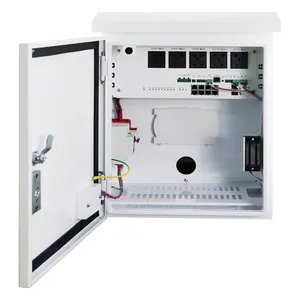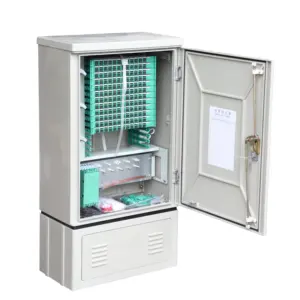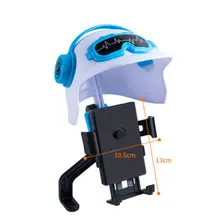What are Networking Storage
Networking storage, also known as network-attached storage (NAS), is a dedicated file storage system that enables multiple users and heterogeneous client devices to retrieve data from centralized disk capacity. Users on a local area network (LAN) access the storage via a standard Ethernet connection. Networking storage systems are scalable and powerful solutions that cater to the needs of businesses and organizations of all sizes, offering a secure way to store, organize, and share data across a network.
The fundamental principle behind networking storage is to provide a centralized repository where data can be stored and accessed by various clients. This centralization not only simplifies the management of data but also improves data availability and redundancy, which can protect against data loss. Unlike direct-attached storage (DAS) or internal hard drives, networking storage devices operate independently and provide dedicated storage capacity that can be easily expanded as needed.
Networking storage systems typically consist of one or more hard drives that are configured for redundancy with techniques like RAID (Redundant Array of Independent Disks) to prevent data loss in the event of a drive failure. These systems come with their own operating system and boast features such as data backup, multimedia streaming, and remote access. They can be used in various environments including home networks, small to medium-sized businesses (SMBs), and large enterprises where they can support a range of applications from simple file sharing to complex cloud-based services.
Types of Networking Storage
Understanding the types of networking storage available is crucial when considering which system best fits your organizational needs. Here are some common types:
Entry-Level NAS: These systems are designed for small businesses or home use, providing basic file storage and backup capabilities. They usually have a lower cost and feature one or two bays for hard drives. Common uses include sharing files within a small office or backing up personal data.
Midrange NAS: Offering more features than entry-level NAS devices, midrange NAS systems are suitable for SMBs with more demanding data requirements. They often support additional bays for hard drives, allowing for greater storage capacity and redundancy options. Businesses might use these for storing large volumes of business documents, databases, or as part of a disaster recovery solution.
High-End NAS: Built for large enterprises with extensive storage needs, high-end NAS systems provide maximum performance, scalability, and reliability. They often include advanced features like clustering capabilities for increased capacity and redundancy, as well as support for virtualization. Use cases include serving as primary storage for critical business applications or as part of a comprehensive enterprise-wide backup strategy.
Unified Storage: A versatile option that combines NAS and SAN (Storage Area Network) capabilities into a single solution. Unified storage is ideal for environments requiring flexibility, allowing the management of file-level (NAS) and block-level (SAN) data within one system. It's commonly utilized in businesses that require both high-capacity file sharing and intensive database access.
How to choose Networking Storage
Selecting the right networking storage for your business involves understanding your current and future data requirements. Here's what you should consider:
Capacity Needs: Evaluate the amount of data you need to store now and in the near future. If your business is growing or you're handling large files like videos, look for systems that offer scalability.
Performance Requirements: High performance is vital if you have applications that require fast read/write speeds or if you need to support multiple users simultaneously without compromising on speed.
Reliability and Redundancy: For critical business operations, choose a networking storage solution that includes redundancy features like RAID configurations to safeguard against data loss due to hardware failure.
Budget Constraints: Determine how much you are willing to invest in networking storage. Entry-level systems will be more cost-effective but might not offer all the features larger businesses need.
Additional Features: Consider extra functionalities such as remote access capabilities, multimedia streaming support, integrated backup software, or virtualization support if these align with your business objectives.
Best Networking Storage on Alibaba.com
Alibaba.com stands as an extensive marketplace connecting businesses with an array of networking storage solutions suited to diverse operational needs. It brings together an extensive selection from trusted suppliers around the world, offering the flexibility to meet the demands of different organizational scales—from home-based ventures to multinational corporations.
The platform's user-friendly interface simplifies the procurement process by enabling buyers to filter products based on various criteria such as product status, interface type, brand, rack size, material function, color, application form factor, style, and many more attributes relevant to their specific needs. This level of customization ensures that businesses can find exactly what they require without sifting through irrelevant options.
Furthermore, Alibaba.com emphasizes security through services like Trade Assurance—a service designed to protect payments right through until delivery is completed—reflecting their commitment to facilitating safe and reliable transactions globally. By choosing Alibaba.com for your networking storage needs, you gain access to a marketplace where quality meets convenience and variety meets specificity—all tailored toward empowering businesses in their quest for efficient data management solutions.
Common FAQs for Networking Storage
What is network-attached storage (NAS)?
Network-attached storage (NAS) is a type of dedicated file storage device that provides local area network (LAN) users with centralized and consolidated disk storage through a standard Ethernet connection.
How does NAS differ from traditional file storage?
NAS systems are distinct from traditional file storage solutions because they provide network users with direct access to files within a network, unlike file servers which require a more complex and direct connection to the network's server.
What are the advantages of using NAS in a business environment?
NAS systems offer simplified management, data sharing, and backup solutions across a network, making it easier for businesses to organize and access their data efficiently while also providing scalability for growing data needs.
Can NAS support both file-level and block-level storage?
Certain advanced or unified NAS systems can support both file-level and block-level storage, allowing them to function similarly to both NAS and Storage Area Networks (SAN).
What should be considered when choosing the capacity of a NAS system?
When selecting the capacity of a NAS system, consider current data storage needs, anticipated growth, the type of data being stored, and how often it needs to be accessed or backed up.
How important is redundancy for NAS systems?
Redundancy is critical for NAS systems that store important business data as it ensures that there is a backup available in case of hardware failure, which helps prevent data loss.
What is RAID and how does it relate to NAS?
RAID (Redundant Array of Independent Disks) is a technology used in NAS systems that combines multiple physical disk drive components into one or more logical units for redundancy or performance improvement.
Can NAS devices be used for multimedia purposes?
Yes, many NAS devices come equipped with features to stream multimedia content such as videos and music, making them suitable for both business presentations and entertainment purposes.
Is remote access possible with NAS systems?
Most modern NAS systems include remote access capabilities, allowing users to access files from anywhere as long as there is an internet connection.
What kind of businesses can benefit from implementing NAS?
Businesses of all sizes can benefit from implementing NAS, especially those that require efficient file sharing and collaboration among employees, remote access to files, or robust data backup solutions.
Are there any particular industries where NAS is particularly beneficial?
NAS is particularly beneficial in industries such as media production, healthcare, legal firms, engineering, and finance where large amounts of data are generated and need to be accessed or shared regularly.
How does virtualization support work with networking storage?
Certain high-end networking storage solutions offer support for virtualization which allows multiple virtual servers to use the same physical storage device, enhancing resource utilization and simplifying management.
Can I expand the storage capacity of my NAS device?
Many NAS devices are scalable, meaning you can expand their storage capacity by adding additional hard drives or upgrading existing ones depending on the device's specifications.
What security features should I look for in a NAS system?
Look for NAS systems with robust security features such as encrypted file transfer protocols, user access controls, secure login methods, and the ability to integrate with existing security infrastructures.
How does the choice of interface type affect my networking storage solution?
The choice of interface type affects the speed at which data can be transferred between the NAS system and connected devices. Common interfaces include Ethernet (RJ-45), eSATA, and USB connections.










































 浙公网安备 33010002000092号
浙公网安备 33010002000092号 浙B2-20120091-4
浙B2-20120091-4